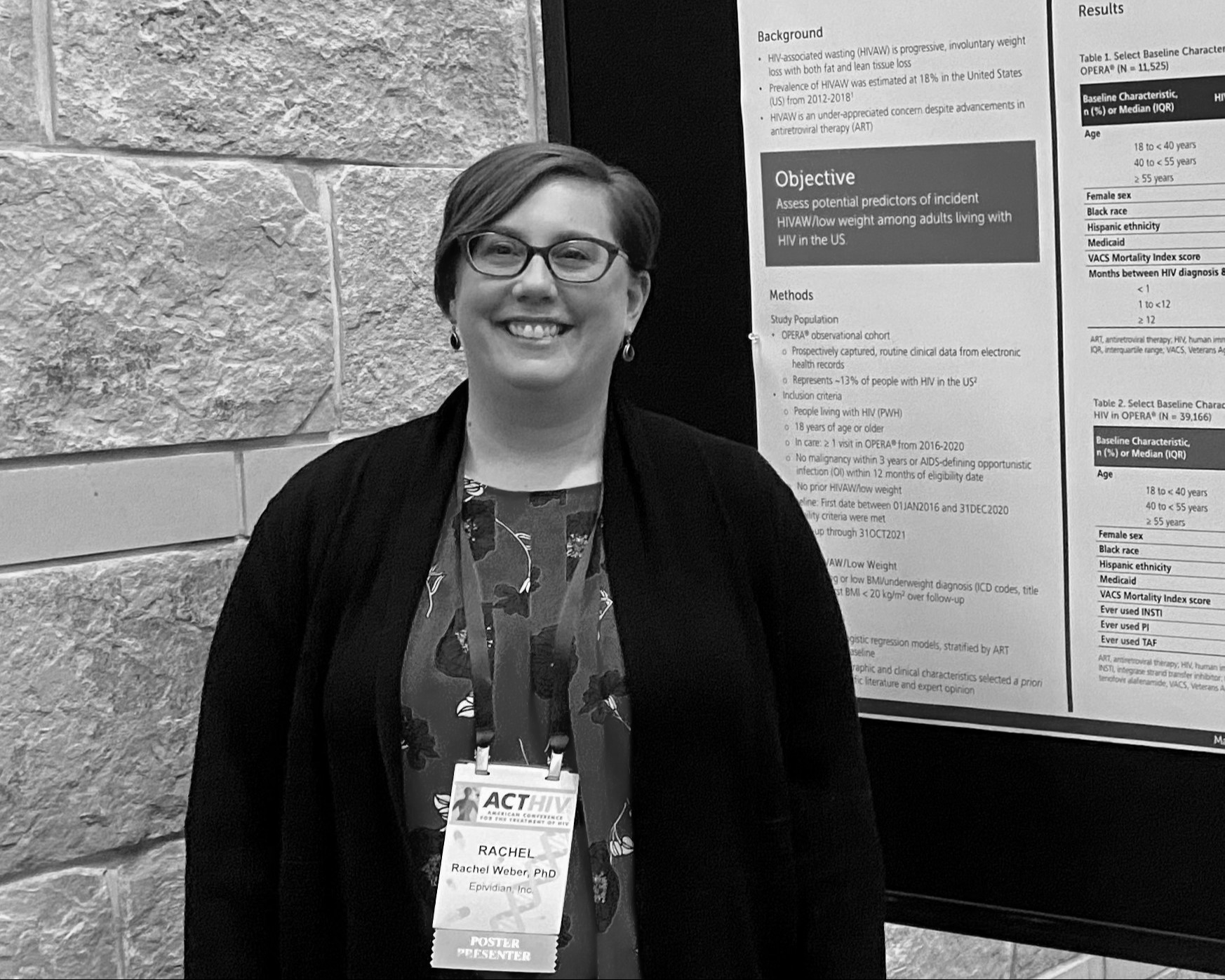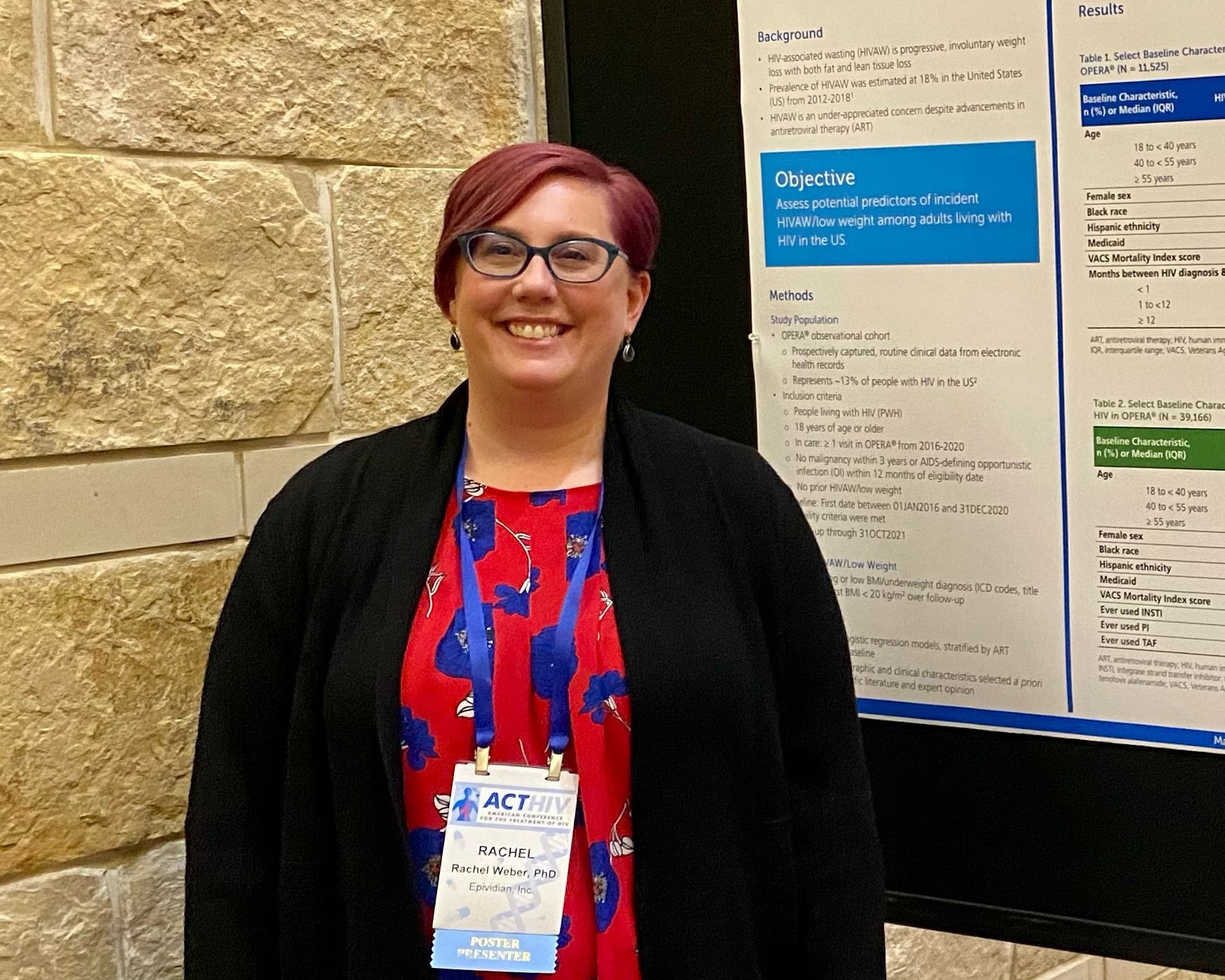Epividian advances the mission of medicine by developing novel technologies and empowering clinical practice, clinical research, academic, public health and regulatory efforts.
![]()
Meet Our Team














Bernie Stooks
Executive Director, Informatics
Bernie Stooks is the Executive Director of Informatics. With over 15 years of IT experience, as well as the last 12 years dedicated in healthcare, Bernie brings a wide-range of technical leadership capabilities to Epividian. Prior to joining Epividian, Bernie architected and led a multi-team Warehouse/BI project for an S&P 500 Company that integrated disparate data stores into a large federated enterprise warehouse. Bernie has been instrumental in the redesign of the Epividian databases leading to improved data quality and more efficient processing. Bernie is currently engaged in the design and development of the Epividian Reporting Portal as well as integrating a natural language processing solution that will enhance the classification and entity resolution capabilities of CHORUS and OPERA.
Gregory Fusco
Chief Executive Officer and Chief Medical Officer
Gregory Fusco is Chief Executive Officer and Chief Medical Officer at Epividian. Mr. Fusco studied microbiology at the University of Michigan, epidemiology at the University of Michigan School of Public Health and medicine at the Michigan State University College of Human Medicine. He trained in anatomic pathology at the University of Pittsburgh. His epidemiology experience spanned both government and industry appointments. He was a site coordinator (Detroit) for the Adult Spectrum of Disease in HIV Study, a national Centers for Disease Control and Prevention sponsored study. This study contributed to the 1993 revised classification system for HIV infection and expanded surveillance case definition for AIDS among adolescents and adults. He has 18 years of experience in the pharmaceutical industry leading Phase 1, 2, 3, and 4 clinical trials in multiple therapeutic disciplines as well as leading epidemiology and outcomes research groups and pharmacoepidemiologic, pharmacovigilance, risk management and signal detection efforts in development programs for both small molecules and biologics. His therapeutic development and life cycle management experience includes Infectious Disease (HIV/HCV), gastrointestinal disease (UC/CD, EE, GERD), metabolic disease (diabetes), cardiovascular disease (hypertension), dermatologic disease (psoriasis), and renal & hematologic disease (anemia of CKD). Well published in multiple therapeutic disciplines, he continues to develop systems for the improvement of medical practice, clinical development and adverse event management and signaling. Additional efforts include the development and identification of biomarker profiles utilizing observational (big data) databases to assist in the medical management of patients and the design and conduct of clinical trials.
Jennifer Fusco
President and Chief Science Officer
Jennifer Fusco is President and Chief Science Officer at Epividian. She studied biology at the University of Michigan and epidemiology at the College of Human Medicine at Michigan State University. Jennifer heads the scientific operations for Epividian and has been working in and/or consulting for the pharmaceutical industry and academia for the past 18 years. Her research focus has been mainly in HIV working with population-level, observational databases. As a founding member of the CHORUS (Collaborations in HIV Outcomes Research in the US) database at GlaxoWellcome/ GlaxoSmithKline, she has consulted on specific research efforts as well as the design and development of database architectural and analysis standards. Her clients have included GlaxoWellcome, GlaxoSmithKline, Boehringer-Ingelheim, Hoffmann-La Roche, University of North Carolina School of Public Health, the Veterans Administration and Yale University. She is well published with experience in the CHORUS database, the OPERA database, the CASCADE (Concerted Action on SeroConversion to AIDS and Death in Europe) database and the VACS (Veterans Aging Cohort Study) database as well as multi-database global collaborations such as the ARTCC and PLATO research collaborative groups.
Laurence Brunet
Senior Director, Epidemiology
Laurence Brunet is the Senior Director of Epidemiology at Epividian. She is a clinical epidemiologist with expertise in the study of HIV comorbidities and unintended effects of drugs in HIV and HIV/HCV co-infected populations. Laurence obtained her MSc (2010) and PhD (2015) degrees in Epidemiology from McGill University, where she conducted studies on tuberculosis in South Africa, and on the impact of illicit and prescribed drug use on the liver in HIV/HCV co-infected patients in Canada. She moved to North Carolina in 2015 to work as a Postdoctoral Research Associate at the Institute for Global Health and Infectious Diseases of the University of North Carolina at Chapel Hill. There, she led projects on HIV comorbidities, HIV treatment, opioid use, and HCV therapy. Laurence joined Epividian in 2017, where she is responsible for the design, conduct, analysis and result dissemination of observational studies using the OPERA database.
Michael Osterman
Assistant Director of Epidemiology
Michael Osterman, PhD is an Assistant Director of Epidemiology at Epividian. While earning a BS in Biology at the University of Michigan (2016), he supported research on DNA damage response in mouse models and humans. During this time, he also worked at Project Healthy Schools, gaining experience with public health intervention efforts to target childhood obesity. Michael continued at the University of Michigan by pursuing a MPH in Hospital & Molecular Epidemiology (2018) where he explored healthcare-associated infections (HAIs) and chronic disease modeling. He held an internship at Michigan Medicine, gaining experience on the surveillance, diagnosis, and prevention of HAIs. While working toward a PhD in Epidemiology & Biostatistics from Case Western Reserve University (2023), Michael focused on the biological mechanism and treatment of chronic diseases. Here, he investigated genetic and environmental risk factors for Alzheimer’s disease and age-related macular degeneration with an emphasis on statistical methodology and predictive models that incorporate genetic information. Since joining the Epividian team in 2023, Michael has gained experience in assessing HIV treatment patterns and targeting populations for HIV prevention, as well as identifying and understanding the antiretroviral therapy experiences of highly treatment-experienced people with HIV.
Rachel Palmieri Weber
Director of Epidemiology
Rachel Palmieri Weber, PhD is a Director of Epidemiology at Epividian. While obtaining a BS in Psychology and Anthropology from the University of Pittsburgh (2001), she worked at the Panic, Anxiety, and Traumatic Grief Program at the University of Pittsburgh Medical Center, gaining valuable experience in mental health clinical trials. She then coordinated the 2005 North Carolina Women’s Health Report Card and earned a MSPH in Epidemiology at the University of North Carolina (UNC) at Chapel Hill (2006). Rachel further focused her training in women’s health on cancer epidemiology, working as the project and data manager for the Ovarian Cancer Association Consortium (OCAC) at Duke University while earning her PhD in Epidemiology at UNC (2015); she used data from fifteen OCAC studies in an individual participant data (IPD) meta-analysis of the association between hysterectomy and epithelial ovarian cancer for her doctoral dissertation. After graduate school, Rachel became the UNC program manager at the RTI-UNC Evidence-based Practice Center where she provided methodological expertise for systematic evidence reviews, comparative effectiveness reviews, and health technology assessments on screening, diagnosis, and treatment across a diverse range of therapeutic areas including cancer, infectious disease, mental health, and women’s health. Since joining the Epividian team in 2019, Rachel has gained experience in HIV-associated wasting, HCV, and clinical decision support systems that aim to improve retention in care, facilitate screening, and increase uptake of treatment.
Brooke Levis
Director of Epidemiology
Brooke Levis, PhD is a Director of Epidemiology at Epividian. While earning a BS in Neuroscience at McGill University (2011), Brooke worked with the Thombs Research Team, where she studied psychosocial aspects of systemic sclerosis (scleroderma). She conducted structured telephone interviews with patients, managed a pan-Canadian patient database, and conducted several independent research projects. Subsequently, Brooke completed MSc (2014) and PhD (2019) degrees in Epidemiology at McGill University. She played a major role in the development of the DEPRESsion Screening Data (DEPRESSD) Project, which uses an individual participant data (IPD) meta-analysis approach to evaluate evidence on depression screening and assessment. Her Master’s project was a pilot study for the DEPRESSD Project, and she examined selective cutoff reporting in studies of diagnostic test accuracy of depression screening tools. During her doctoral studies, she continued to develop and expand the DEPRESSD Project, and she used data from the project to conduct a series of IPD meta-analyses. Upon completing her PhD, Brooke pursued a postdoctoral fellowship at Keele University in the UK, where she led or supported several projects related to IPD meta-analysis, prediction, and prognosis. After her postdoc, Brooke returned to McGill University as a Research Associate and Lecturer. She contributed to the DEPRESSD Project as a steering committee member and to the Scleroderma Patient-centered Intervention Network (SPIN) Project as the lead trial analyst. In addition to her main research projects, Brooke has collaborated on other multidisciplinary and international IPD meta-analysis projects on topics including diagnosis and prognosis in stroke, cancer, and Zika virus. Since joining the Epividian team in 2023, Brooke has gained experience in survey methodology as well as long-acting injectable HIV treatment and prevention.
